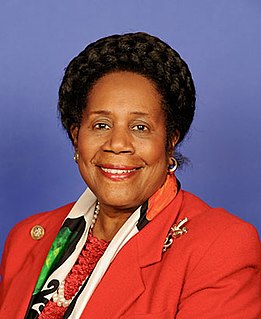A Quote by Bertrand Russell
All the important human advances that we know of since historical times began have been due to individuals of whom the majority faced virulent public opposition.
Related Quotes
There has been opposition to experimenting on animals for a long time. This opposition has made little headway because experimenters, backed by commercial firms that profit by supplying laboratory animals and equipment, have been able to convince legislators and the public that opposition comes from uninformed fanatics who consider the interests of animals more important than the interests of human beings.
Since there is no such entity as 'the public,' since the public is merely a number of individuals, the idea that 'the public interest' supersedes private interests and rights can have but one meaning: that the interests and rights of some individuals take precedence over the interests and rights of others.
I think that it's important to make criticisms of the government as a whole and criticisms of the policies, but to do so in a way that you can invite the individuals who maybe were on the opposition before, or who voted for somebody whom you are in disagreement with... that you open the door for a conversation with those people.
Writers of historical fiction are often faced with a problem: if they include real-life people, how do they ensure that their make-believe world isn't dwarfed by truth? The question loomed large as I began reading 'The Black Tower', Louis Bayard's third foray into historical fiction and fifth novel overall.
When a parliamentary or social majority decrees that it is legal, at least under certain conditions, to kill unborn human life, is it not really making a tyrannical decision with regard to the weakest and most defenseless of human beings?....While public authority can sometimes choose not to put a stop to something which were it prohibited would cause more serious harm, it can never presume to legitimize as a right of individuals even if they are the majority of the members of society an offense against other persons caused by the disregard of so fundamental a right as the right to life.
The vast majority of us don't want to face the fact that we're in the middle of a sweeping social revolution. In sex. In spiritual values. In opposition to wars no one wants. In opposition to government big-brotherhood. In civil rights. In basic human goals. They're all facets of a general upheaval.
A ground frequently taken by Christian theologians is that the progress and civilization of the world are due to Christianity; and the discussion is complicated by the fact that many eminent servants of humanity have been nominal Christians, of one or other of the sects. My allegation will be that the special services rendered to human progress by these exceptional men have not been in consequence of their adhesion to Christianity, but in spite of it, and that the specific points of advantage to human kind have been in ratio of their direct opposition to precise Biblical enactments.
With a historical novel you know that liberties are being taken. Since Walter Scott, we know that poetic license, dramatic license, that events been conflated and that liberties have been taken, characters ditto, dates rearranged. But people don't seem to understand that movies are fictions, they are dramatizations, at least historical movies, and we should accord the moviemakers some of the same understanding and latitude. When you go to a movie you know it's a dramatization and not history.
I don't think one can accurately measure the historical effectiveness of a poem; but one does know, of course, that books influence individuals; and individuals, although they are part of large economic and social processes, influence history. Every mass is after all made up of millions of individuals.
Human life in common is only made possible when a majority comes together which is stronger than any separate individual and which remains united against all separate individuals. The power of this community is then set up as right in opposition to the power of the individual, which is condemned as brute force.



































